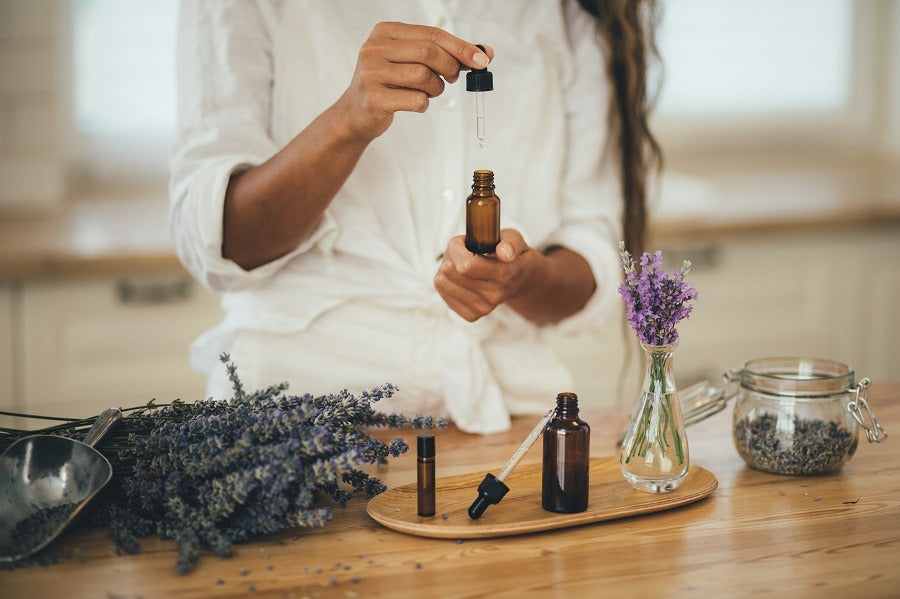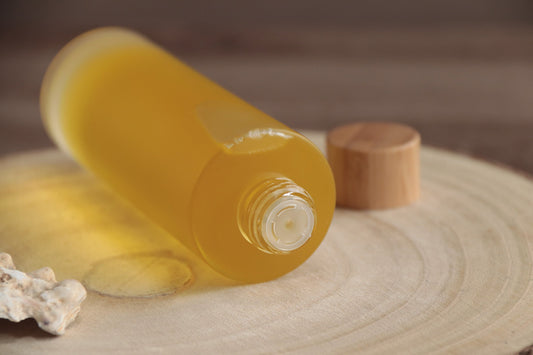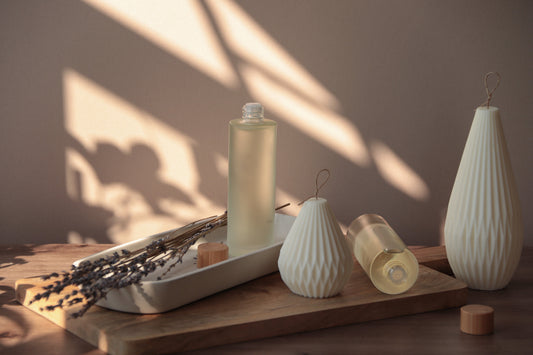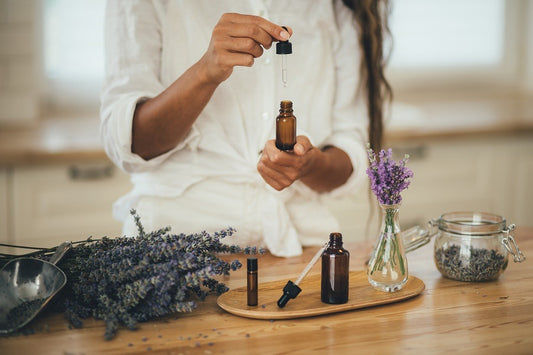The Father of Aromatherapy was... A Chemist?
Rene-Maurice Gattefosse was born in 1881 in Lyon, France. His father Louis was the founder of Establissement Gattefosse, representing companies that manufactured oils, household products and raw materials for the perfume industry.
After completing his studies in Chemical Engineering at The University of Lyon, Rene-Maurice, the third of five children, joined the family business as a researcher into essences and perfumes. Deeply excited by his new role, he immersed himself in researching and designing new and innovative formulas and in 1906 he published the results of his research; 'Le Guide Pratique et Formulaire du Parfumeur Moderne'.

In 1907, René-Maurice began working closely with the Lavender producers of Haute-Provence, who introduced him to the uses and medicinal properties of the fragrant flower. Passionate about the knowledge he'd gained and wanting to share it with the world, René-Maurice published numerous articles on the therapeutic properties of lavender.
In July of 1910 while working in his laboratory, Rene-Maurice was splashed with boiling essence from a flask that had suddenly exploded. Both of his hands were badly burned and later treated with oil-soaked dressings, but when his wounds began to give off a gangrenous odor, he thought back to his research on the healing and anti-septic properties of lavender. After carefully removing the bandages, he plunged his hands into a vat of pure lavender oil. Two days later his fever had left, the infection disappeared, and his wounds healed quickly, without scarring.
Deeply motivated by his experience, René-Maurice embarked upon a new mission: To bring Essential Oils into the modern medical field. He dedicated most of his time to studying the chemical properties of lavender essential oil, naturally developing an interest in lots of other essential oils along the way.
In the 1930s, René-Maurice’s findings were widely recognised. He wrote about the physiological effects of plant based solutions and published 4 booklets on the therapeutic uses of lavender. He manufactured antiseptic soaps and creams and his products for disinfection were used in hospitals, factories, barracks, schools and cinemas.
In 1937, René-Maurice wrote a summary of his work in a book he called 'Aromatherapy'. A year later he published 'Essential Antiseptics', in which he detailed the anti-bacterial and anti-microbial properties of essential oils. Today he is known as the father of Aromatherapy.
Although the term 'Aromatherapy' was coined by Rene-Maurice, the use of Essential Oils, plant materials and herbal remedies to treat illness and infectious disease can be traced all the way back to ancient times, and almost all of the medicines developed in the last century were made from naturally occurring molecules found in plants, fungi and bacteria. With new advancements in science, chemists were able to study these plant materials more closely, extracting the active ingredients to make more potent medications. Willow Tree bark was often used in traditional herbal remedies, and it's from this that Acetylsalicylic Acid was discovered, and turned into what we know today as Aspirin. Even Penicillin is grown in, well, mold. Gross.
The Lemongrass Experiment
If you take a drop of pond water and pop it under a microscope, you'll likely observe large colonies of bacteria swimming around and enjoying their day. If you then take a few drops of pure Lemongrass Essential Oil and mix it with a little distilled water, you can pour the mixture onto the pond water and watch the microbes stop moving within around ten seconds. You can repeat this experiment with many other oils such as Bergamot, Thyme, Rosemary and Clove.
The research on the healing properties of Essential Oils grows year on year, and although things like the anti-microbial properties of Lemongrass can be witnessed with our own two eyes, the exact mechanisms causing these reactions still have yet to be confirmed. What we do know is this: Essential Oils effectively destroy harmful bacterial, fungal and viral pathogens due to the presence of different types of aldehydes, phenolics, terpenes, and other antimicrobial compounds, and have very few side effects, if any, when used correctly.
Plant extracts are still largely present in almost all areas of treatment. Medicines for sleep often include Lavender and Chamomile extracts, whilst acne remedies are commonly made with Tea Tree, Cinnamon and Rosemary. Muscle warming balms contain Ginger and Peppermint and ointments for arthritis use ingredients like Comfrey due to its anti-inflammatory and analgesic (pain relieving) properties.
Nowadays, the overuse of modern medications has caused many harmful pathogens to become drug-resistant (such as MRSA, responsible for more than 100,000 deaths attributable to antimicrobial resistance in 2019), meaning the antibiotics (anti-microbials) designed to kill them, have little to no effect. In addition, the use of these medications are limited due to their acute toxicity, carcinogenic effects, and environmental hazard potential.
While medicine focusses on treating illness and preventing disease, biomedicine is concerned with the research, development and testing of new drugs on the human body. Although many clinical trials have studied the healing and pain reducing properties of Essential Oils as well as their positive effects on mental health conditions and sleep regulation, much more research is needed to fully recognise and understand their potential as effective, powerful and sustainable treatments for various illnesses and diseases, quite possibly, even drug-resistant ones.




